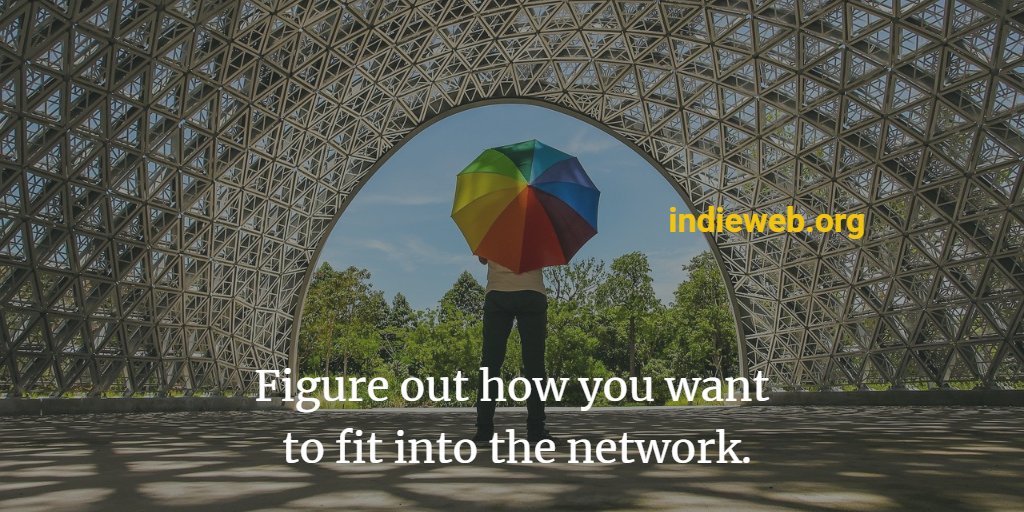Ben Werdmuller recently published an inspiring and thought-provoking blog post: “Subscribing to the blogs of people I follow on Mastodon”. Beyond the insights and excellent developer how-to in his post, I believe it points to something larger: a fundamental thoughtfulness difference between writing rapid short-form posts (whether tweets or toots) and medium or longer form writing (on blogs or journals), and the impact of that difference on readers: that the act of reading more thoughtful writing nudges & reinforces a reader into a more thoughtful state of mind.
If you have not read Derek Powazek’s watershed blog post “The Argument Machine”, I highly recommend you do so. In the nearly ten years since his post, Derek’s hypothesis of Twitter’s user interface design being the ultimate machine to create & amplify disputes has been repeatedly demonstrated.
Derek’s post predated Mastodon’s release by nearly three years. Ironically, by replicating much of Twitter’s user experience, Mastodon has in many ways also replicated its Argument Machine effects, except distributed across more servers.
I’ve witnessed numerous otherwise rational, well-intentioned individuals write reactive posts on Mastodon, exactly what the Twitter-like interface encourages. Quick emotional responses rather than slower, more thoughtful posts and replies.
I’ve seen the artificial urgency of tweets & toots bleed over into emotional essays on public mailing lists. New participants join a list and immediately make entitled demands. Fearful bordering on paranoid assumptions are used to state assertions of “facts” without citations. Arguments are made that appeal to emotion (argumentum ad passiones) rather than reasoning from principles and shared values.
Implicit in Ben’s post, “Subscribing to the blogs of people” (emphasis mine), is a preference for reading longer form writing, published on a site a human owns & identifies with (a la #indieweb), neither silo nor someone else’s garage.
The combination of taking more time (as longer form writing encourages) and publishing on a domain associated with your name, your identity, enables & incentivizes more thoughtful writing. More thoughtful writing elevates the reader to a more thoughtful state of mind.
There is also a self-care aspect to this kind of deliberate shift. Ben wrote that he found himself “craving more nuance and depth” among “quick, in-the-now status updates”. I believe this points to a scarcity of thoughtfulness in such short form writings. Spending more time reading thoughtful posts not only alleviates such scarcity, it can also displace the artificial sense of urgency to respond when scrolling through soundbyte status updates.
When I returned from #W3CTPAC, I made a list of all the thoughts, meetings, sessions that I wanted to write-up and publish as blog posts to capture my experiences, perspectives, and insights beyond any official minutes.
Yet due to distractions such as catching up on short form posts, it took me over a week to write-up even a summary of my TPAC week, nevermind the queue of per-topic notes I wanted to write-up. To even publish that I had to stop and cut-off reading short form posts, as well as ignoring (mostly postponing) numerous notifications.
There’s a larger connection here between thoughtful reading, and finding, restoring, and rebuilding the ability to focus, a key to thoughtful writing. It requires not only reducing time spent on short form reading (and writing), but also reducing notifications, especially push notifications. That insight led me to wade into and garden the respective IndieWeb wiki pages for notifications, push notifications, and document a new page for notification fatigue. That broader topic of what do to about notifications is worth its own blog post (or a few), and a good place to end this post.
Thanks again Ben for your blog post. May we spend more time reading & writing such thoughtful posts.

:format(webp)/cdn.vox-cdn.com/uploads/chorus_asset/file/25024444/CleanShot_2023_10_23_at_09.36.40_2x.png)

